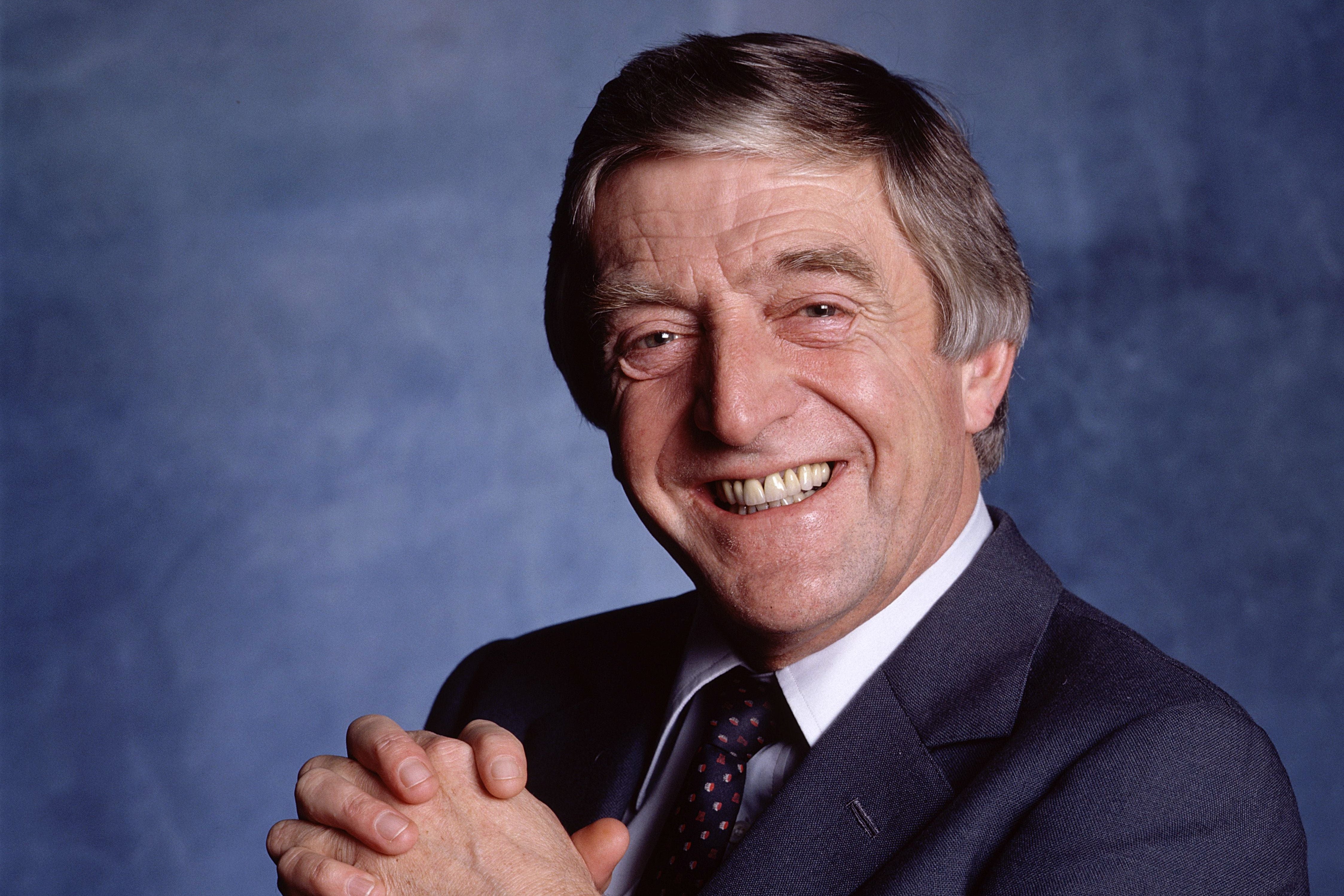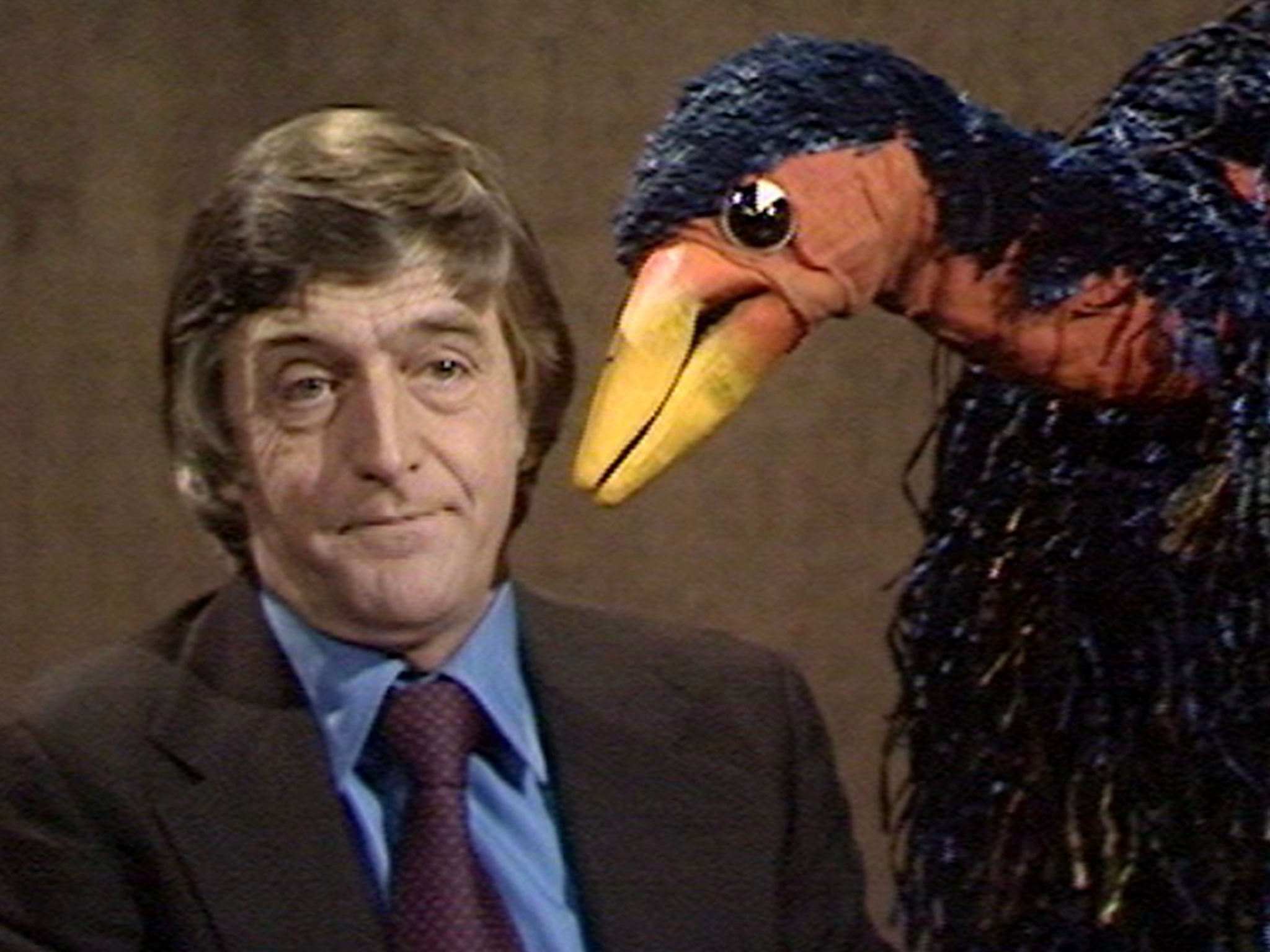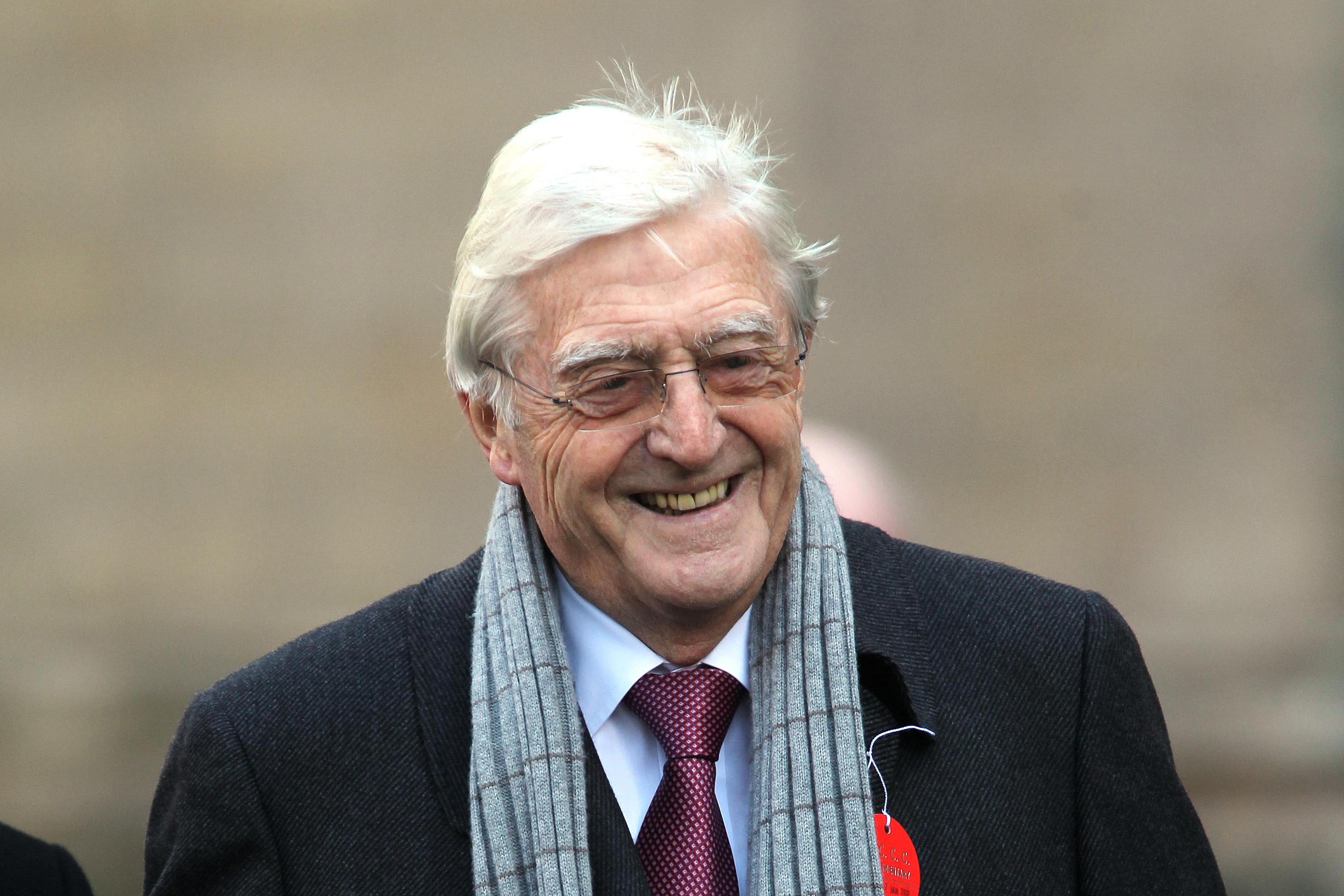He hated John Wayne, riled Meg Ryan and sparred with Ali: Michael Parkinson defined the British chat show
With his relaxed charm and Yorkshire brogue, Michael Parkinson got some of the world’s biggest stars to open up. Martin Chilton pays tribute to once-in-a generation broadcaster Michael Parkinson, who has died at the age of 88


Your support helps us to tell the story
From reproductive rights to climate change to Big Tech, The Independent is on the ground when the story is developing. Whether it's investigating the financials of Elon Musk's pro-Trump PAC or producing our latest documentary, 'The A Word', which shines a light on the American women fighting for reproductive rights, we know how important it is to parse out the facts from the messaging.
At such a critical moment in US history, we need reporters on the ground. Your donation allows us to keep sending journalists to speak to both sides of the story.
The Independent is trusted by Americans across the entire political spectrum. And unlike many other quality news outlets, we choose not to lock Americans out of our reporting and analysis with paywalls. We believe quality journalism should be available to everyone, paid for by those who can afford it.
Your support makes all the difference.Michael Parkinson defined the television chat show in Britain. The presenter, who has died at the age of 88, was in a class of his own as an interviewer, enduring for nearly four decades. Parkinson, with his relaxed charm and Yorkshire brogue, always insisted that finding “the right chemistry” was the secret to stimulating television conversation.
The sharp-witted host attracted superstars to his era-defining programmes. They were always put at ease by his gift for attentive listening, which enabled him to create some of the most memorable moments in British television history, especially in seminal encounters with guests such as boxer Muhammad Ali and Orson Welles. Billy Connolly made his breakthrough after telling a rude joke about bums and parking a bicycle on the show, and Parkinson drew from Victoria Beckham the revelation that her nickname for her husband David was “Goldenballs”.
One of the reasons that Parkinson was so special was that, first and foremost, he remained a brilliant journalist – it was a description he kept on his passport his whole life – something evident in the genuine curiosity and enthusiasm he brought to the job of interviewing such a diverse range of people. He also retained a bluntness that came from his tough upbringing as the son of a miner from the village of Cudworth near Barnsley. Recalling his dislike of Hollywood actor John Wayne, for example, he said that during the interview he realised he was talking to a man with dangerous political views who was like “the demented sheriff of a small town”.
Parkinson’s father Jack, who would suffer lung damage late in life from the effect of inhaling coal dust, took his young son down into a narrow seam in Grimethorpe Colliery to show him the awfulness of pit life. “He showed me men crawling on their bellies in the dark and I knew then I didn’t want to do it,” Parkinson recalled, adding that his father warned him he would “kick me up the arse” if he ever went near the pit gates.
Instead, Parkinson went to grammar school and then found work as a reporter, including in Barnsley and Doncaster, later describing his three years work in local newspapers as “staggeringly boring”. Parkinson always conveyed the feeling that he was bringing a lifetime of experience to his role interviewing big-name celebrities. And his grounding was thorough. Before getting near a television screen, he worked in a bottle factory in Barnsley, went on National Service and worked as a press officer during the abortive invasion of Suez in 1956, reported for the Manchester Guardian and worked as a feature writer on national newspapers. He also reported in conflict situations, including on the Six-Day War in the Middle East, and was arrested and deported from Zanzibar after a coup.
Parkinson joked that it was being “very vain and wanting to be recognised” that drew him to a career in front of the camera. He laughed about his television debut, a chat show for ABC in Manchester, when he said the only person who recognised him was a pub landlord, who did not mince words about his “bloody terrible” performance.
After getting his big break at the BBC, he introduced the first Parkinson show in June 1971, with American jazz singer Marion Montgomery as his first guest. Thousands of others over hundreds of episodes would follow, in a glittering career that included two main spells with the BBC and less successful shows with ITV and Sky Arts.
It was a few dozen of his most memorable encounters, including with boxer Ali and comedian Connolly, that sealed a deserved reputation as the doyen of British talk-show hosts. He was, as comedian Eddie Izzard put it on social media today, “the king of the intelligent interview”. Parkinson did his own thorough research about guests, finding out everything he could about them, and then getting them to tell their story.

“It’s the narrative of their lives that always fascinated me,” he said. He would study their body language and always maintained eye contact – and he had ruthless instincts. “There comes a moment when their eyes change. You can see a relaxing and then they’ll sit back, then you know you’ve got them,” he admitted about drawing out revealing anecdotes. You can see that skill at work in a famous 1972 interview with John Lennon, when Parkinson, warned beforehand not to discuss the band’s split, suddenly swoops in with a direct question about the tensions within The Beatles. Lennon vigorously defended Yoko Ono, who had been blamed for the split with Paul McCartney. “The British press called Yoko ugly in the papers. I’ve never seen that about any woman or man,” Lennon told Parkinson.

Watch Apple TV+ free for 7 days
New subscribers only. £8.99/mo. after free trial. Plan auto-renews until cancelled

Watch Apple TV+ free for 7 days
New subscribers only. £8.99/mo. after free trial. Plan auto-renews until cancelled
Parkinson made it look easy, in a way perhaps that felt a bit forced with successors such as Jonathan Ross, and his fame was such that he even earned a cameo in Love Actually and on the Australian soap Neighbours.
Most of his best interviews were with gregarious, larger-than-life men – brilliant conversations with Peter Ustinov, Orson Welles, Kenneth Williams, Michael Caine, Anthony Hopkins, Elton John, Barry Humphries, Jack Lemmon, Walter Matthau, Tommy Cooper, Dudley Moore, Peter Sellers and Robin Williams come to mind – and some of his worst ones were with women.
One of the most notorious was with actress Meg Ryan, when she was promoting her 2003 film In the Cut. The terse interview ended prematurely and Parkinson later called her “rude” and “an unhappy woman”, while Ryan branded him a “nut” and said he had spoken to her “like a disapproving dad”. In 2021, looking back on the clash, Parkinson told the Radio Times: “I wish I hadn’t lost my temper with Meg Ryan. I wish I’d dealt with it in a more courteous manner. I was quite obviously angry with her and it’s not my business to be angry towards the guests. I came across as kind of pompous and I could have done better.” He also said he regretted a prurient 1975 interview with Helen Mirren that prompted the award-winning actress to call him “a sexist old fart”.
Perhaps his most disastrous interview, however, was the 1976 one when he was mauled by Rod Hull and his arm-length alter-ego Emu. “Why is it so aggressive?” lamented an uneasy Parkinson, as Hull’s giant feather puppet caused havoc with its beak, grabbing Parkinson by the nose, tearing his script up, breaking a table and eventually leaving the host sprawled on the floor, after knocking him out of his swivel chair. The next guest, Billy Connolly, had no such trouble having warned Hull, “If that bird comes anywhere near me, I’ll break its neck and your bloody arm!”

Surprisingly, despite all the Hollywood stars and famous comedians that Parkinson interviewed, he cited Professor Jacob Bronowski, the author of science classic The Ascent of Man, as “my favourite interview of all,” explaining that it was “because of the way his brain worked, his wonderful methodical way and extraordinary way of telling his story”. Parkinson was always happy to tell a story against himself, incidentally. He recalled he once bought a “regrettable” leather jacket to wear to work, prompting comedian Eric Morecambe to tell Parkinson he looked like a tall wallet.
Parkinson said the three main passions of his life were cinema, music and sport – and he was good enough at cricket as a schoolboy to keep Geoffrey Boycott out of the Barnsley cricket team. Parkinson excelled at interviewing sports personalities and said that the two interviews he most regretted missing out on were Frank Sinatra and master Australian batsman Sir Donald Bradman (“he’s the ‘big cat’ that’s missing from my collection,” Parkinson revealed). He interviewed footballer George Best more than a dozen times and the pair became close friends. Best would stay at Parkinson’s house and play football with his children Andrew, Nicholas and Michael Jr in the garden.

Jazz was another of Parkinson’s lifelong passions. He was enthralled to have Duke Ellington on his show and said he couldn’t believe his luck that he got to sit next to the “extraordinary master composer” while he played “Take the A Train” on a grand piano. When my late father John was on Parkinson, playing trumpet with guest George Melly, the presenter was a model of friendliness and spent a long time backstage quizzing him about Louis Armstrong, describing Satchmo as “the great hero that I never got to meet”. Jazz remained a sustaining passion for Parkinson. One of his last assignments, at the age of 86, was hosting a six-part series on Jazz FM called Parky: My Kind of Jazz.
Parkinson had such a wide skillset. He was a talented host of Radio 4’s Desert Island Discs, when he took over from creator Roy Plomley in 1985, and a knowledgeable and amiable guest presenter of shows such as Give Us a Clue and Barry Norman’s Film show. The people who worked with him respected him professionally and liked him personally. When I contacted Laurie Holloway about the news of Parkinson’s death, the longstanding musical director for the BBC’s Parkinson show, simply replied: “Just say that I have lost my best friend.”
Just say that I have lost my best friend
Parkinson also leaves a fine legacy as an author. His books – written on the same grey model of Olivetti typewriter on which Ernest Hemingway created Death In The Afternoon – included sporting biographies, books on Hollywood stars and the entertaining A Collection Of Outrageous Wit and Wisdom From Barnsley’s Favourite Son. He was also an astute newspaper columnist, work that included a regular weekly column on sport for the Telegraph. I can testify from personal experience that he was a canny negotiator.
Parkinson was also part of that 1970s culture of boozy four-hour lunches and he spoke candidly late in life about the problems of alcohol and how his wife of more than 60 years, television presenter Mary Parkinson, had helped him get the better of drinking habits. She remained his constant support in their Maidenhead home after late-life diagnoses for prostate cancer and heart problems.
In his heyday, Michael Parkinson bestrode Saturday night television like a colossus and his passing truly marks the end of an era. And, despite his worries, he will be remembered for so much more than what he called “that bloody bird”.



Join our commenting forum
Join thought-provoking conversations, follow other Independent readers and see their replies
Comments